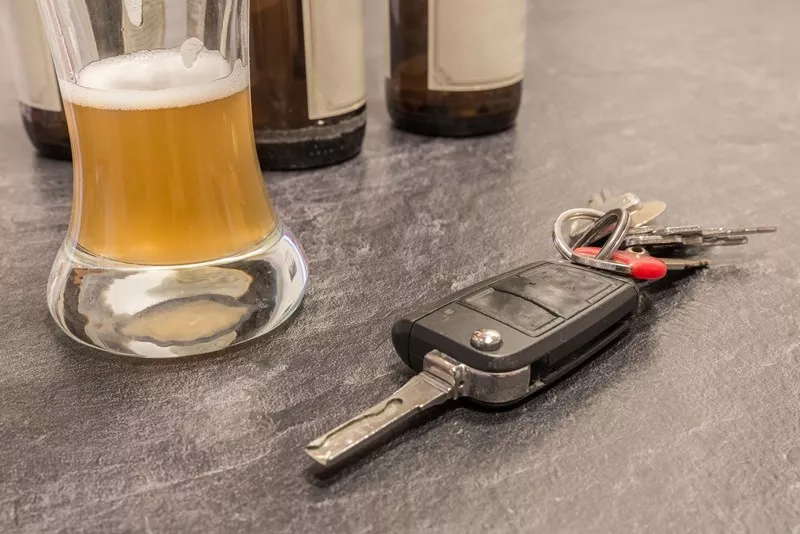Qualifications
- LLB, BCom, University of Otago 2021
- Admitted to the Bar in New Zealand 2022
Contact
- DDI: +64 7 262 0438
- M: +64 27 963 7760
- E: sam.howell@hobec.co.nz
Sam is a civil litigation lawyer.
He is well-versed in commercial, company, construction and insolvency law matters and regularly appears for clients in the District Court and High Court. Sam provides litigation support to the Independent Bar across the North Island and has experience appearing as sole or junior counsel. Sam also acts as counsel on a wide range of criminal matters, including drug-related offences. He aims to provide pragmatic and commercial advice to all his clients.
Sam grew up in Dunedin and enjoys living in the Bay of Plenty. Outside of work, Sam volunteers at Baywide Community Law and tutors at the University of Waikato.
Sam Howell's Expertise
Sam Howell's News & Resources

What protection do you have as a business purchasing goods? Contract and Commercial Law Act
Everyone knows about the Consumer Guarantees Act 1993 (CGA), which provides a “consumer” with remedies if a business has failed to provide goods or services to a reasonable standard. But what happens if you are a business purchasing goods? The answer is not found in the Consumer Guarantees Act 1993; it is found in the Contract and Commercial Law Act 2017 (the CCLA).
The CCLA implies seven conditions and/or warranties in a contract for the sale of goods:
right to sell;
conformity with description;
fitness for purpose;
merchantable quality;
conformity with samples;
rights of examination, and;
acceptance.
Not every breach of contract allows for rejection, but a trivial breach of a condition does. This means that a buyer can return goods supplied to a seller. Importantly, whether a term is a condition or a warranty depends on the construction of the sale of goods contract.
An important implied condition is “fitness for purpose”. This means that goods must be reasonably fit for purpose. But, unlike the CGA, this condition will only apply where the buyer makes known to the seller the particular purpose for which the goods are required, and that the goods are of a description that it is in the course of the seller’s business to supply. What this means is that when a buyer of a vehicle makes known to the seller that they will be using a vehicle to tow a caravan, then there is an implied condition that the vehicle is fit for that purpose; towing a caravan. This was the case in Finch Motors v Quinn (No 2) [1980] 2 NZLR 519. Mr Quinn, the buyer, told the seller that he wanted a car for towing a boat on extended trips. The seller, Finch Motors, told Mr Quinn they had the ideal car for the job. Not long after the sale, Mr Quinn used his car to tow the boat when it overheated. This, the Court found, was a breach of the implied condition that goods are fit for purpose.
There is also an implied condition that goods are of a “merchantable quality”. This is similar to “acceptable quality” under the CGA. The test for whether goods are of a “merchantable quality” is found in an old case, Taylor v Combiner Buyers [1924] NZLR 627. In that case, the Court asked the following question: Are the goods of such a quality and in such a state and condition as to be saleable in the market, as being goods of that description, to buyers who are fully aware of their quality, state, and condition, and who are buying them for the ordinary purposes for which goods so described are bought in that market?
Unlike the CGA, the CCLA allows contracting parties to vary or exclude the implied conditions and/or warranties. This includes fitness for purpose and merchantable quality. To do this, the contract must be clear as to the conditions and/or warranties that it purports to vary or exclude. In Wallis, Son & Wells v Pratt & Haynes [1911] AC 394 (HL), for example, the seller’s terms and conditions stated that there is “no warranty express or implied”. The Court found that this did not exclude implied conditions, only implied warranties. If the seller wanted to exclude the implied conditions, including fitness for purpose and merchantable quality, they had to do so expressly.
Holland Beckett has experience advising buyers and sellers. This is a complex area of law and Holland Beckett is available to assist.

Shareholder Disputes – you are not without options
Shareholder disputes are not uncommon. Yet, when they arise, a shareholder dispute is nothing short of disruptive, distracting and – usually - detrimental to business.
While shareholder disputes can take various shapes and sizes, they most commonly involve a shareholder disagreeing with the way in which a company is being managed; or shareholders becoming “deadlocked”. Regardless, a shareholder has a range of options at their disposal to resolve disputes with fellow shareholders.
The starting point for any shareholder dispute regularly involves an informal/formal meeting, mediation or arbitration. Each of these options has its merits and can be tailored to suit almost any shareholder dispute. It is also worth bearing in mind that shareholder agreements typically contain dispute resolution clauses. These clauses set out the process that must be followed to address disputes between shareholders. However, should these fail, a shareholder may need to file court proceedings. We explore the options available to shareholders under s 174 of the Companies Act 1993 (the Act).
Oppressive conduct?
Under s 174 of the Act, a shareholder may seek relief from the Court provided it can satisfy two elements. Firstly, proving that the affairs of the company have been, or are likely to be conducted in a manner, or the conduct of the company is, “oppressive, unfairly discriminatory, or unfairly prejudicial”. Secondly, the Court must consider it “just and equitable” to make an order for relief.[1]
For the first element, the question is whether there has been a visible departure from the standards of fair dealing, viewed in light of the history and structure of the particular company and the reasonable expectations of its members.[2] Such a departure does not need to be conducted in bad faith.[3] The focus is on the conduct’s effect on the complaining shareholder. As such, s 174 is designed to provide a broad and flexible remedy for conduct which is unjustly detrimental on a shareholder.
Unfair prejudice will arise in cases of company mismanagement, failing to facilitate a return for shareholders, excluding shareholders from participation and access to financial records, directors acting self-interestedly, and operating a company for the benefit of its parent. Green v Gillette was a recent case example in which the Court of Appeal made an order under s 174 of the Act.[4] Mr Gillette and Mr Green were shareholders in SunPower Limited. Mr Gillette was also employed by SunPower. When SunPower experienced financial difficulty, it ceased paying Mr Gillette’s salary, causing a deterioration in the shareholder relationship. Mr Gillette stopped working for SunPower and brought proceedings against it in the Employment Relation Authority. Subsequently, Mr Green incorporated a new company – “SunPower Solar Limited” – which acquired SunPower’s assets and workflow. Mr Gillette had no knowledge of these transactions. The Court had little difficulty finding that this amounted to unfairly prejudicial conduct. Other forms of unfairly prejudicial conduct can include “cash” or “asset” stripping. This can occur, for example, when a holding company charges illegitimate or overinflated management fees to its subsidiaries.[5]
The Act also deems certain conduct as unfairly prejudicial.[6] Such “deemed” conduct gives rise to an irrebuttable presumption of unfair prejudice.[7] An example of this, is a failure to obtain a special resolution of shareholders in respect of a major transaction.
Relief?
What type of relief can a shareholder expect to receive from the Court? A “buyout order” by the majority shareholder is the most common remedy.[8] This is because cases often involve tightly held companies in which members can no longer do business together. That being said, a buy-out will not always be appropriate. If a shareholder (or director) devalues the company, a buy-out would not adequately resolve the wrong to the complaining shareholder.[9] A buy-out may not also be appropriate when a company is difficult to value.[10] Importantly, compensation may be awarded against director of companies, as “any other person” under s 174(2)(b).[11] The important point is that the suitable form of relief is that which repairs the actual harm done.
The courts may also wind-up a company under s 174 of the Act. Having said that, such a remedy is considered “blunt” and “drastic” – especially when dealing with a solvent and successful business. A liquidator may be appropriate where steps need to be taken to recover funds properly owed to the company,[12] which could include a shareholder’s overdrawn current account. It may also be necessary to grant compensation alongside liquidation.[13]
Conclusion
All of this is to say that, while shareholder disputes are frustrating, you are not without options. The Companies Act 1993 provides other mechanism to address shareholder disputes and the above is an example of one such option. The above is only very general guidance and should not be relied on as legal advice.
Companies Act 1993, s 174.
Thomas v H W Thomas Ltd [1984] 1 NZLR 686; (1984) NZCLC 99,148(CA) at p693,155 (referring to the s 209 of the Companies Act 1955); affirmed in Sturgess v Dunphy [2014] NZCA 266 at [138].
Sturgess v Dunphy [2014] NZCA 266 at [139].
Green v Gillette [2022] NZCA 408
Oppenheimer NZ Ltd v Struthers [1994] MCLR 156.
Section 175.
Kim v Pink Nails Ltd HC Hamilton CIV-2009-419-1472, 11 August 2010.
Sturgess v Dunphy at [148].
Kyle v Huapai [2014] NZHC 1981, at [14].
Hayes v Taniwha Buses Ltd [2014] NZHC 1965.
See, for example, GJ Holding Trustee Ltd v Frith [2023] NZHC 563; and Maryatt v PC Home Hire Ltd HC Auckland M269-SD00, 2 September 2002; (2002) 9 NZCLC 263,033 at [92].
Ross v Smith [2012] NZHC 3034, at [24].
Kyle v Huapai Enterprises Ltd [2014] NZHC 1981, at [14].

Buying property with family – fun or potential fiasco?
In the present economic climate, getting into (or climbing) the property ladder is tough. To get a deal across the line, purchasers are increasingly looking to alternative ownership options.
One such option we commonly see is ‘co-ownership’ of property between family members. Taking matters a step further than the traditional parental guarantee of a child’s purchase, we are now seeing co-ownership between multiple relatives (such as siblings and their spouses, or parents and all/some of their children). This is despite that not all owners intend to live in or maintain the property.
While this sounds good on paper, unfortunately these arrangements often proceed without the appropriate documentation and can go wrong. Untangling them can be complex where there has been intermingling of purchase funds, family members not being treated equally, deaths occurring and relationships souring over time.
What to do if you want to buy property with other people?
If you are buying property with others (often who are not your spouse or partner), you should have a written agreement to cover key aspects.
The terms can cover:
ownership shares and monetary contributions to purchase (including bank loans);
who will live in the property;
who will pay property expenses and maintenance;
what will happen if someone wants to sell the property and others don’t;
what happens on death of a party;
and how will any proceeds of sale be distributed.
This way, if a dispute does arise there will be a clear path forward to minimise any fall out (if possible). Property Sharing Agreements are used to document these arrangements, which are simple but effective. Purchasers can also consider whether funds should be gifted or loaned. Our property lawyers can assist you with this process. You can also read our article on Gift v Loan.
If you are wanting to buy property with your partner or spouse, there are a different set of questions and documentation to consider (for example, whether you need a contracting out agreement). Our dedicated family team can advise you on all aspects of relationship property. See also our article on Contracting Out Agreements 101.
When it goes wrong
A recent example of an undocumented family property purchase is the case of Boot (As Executor and Trustee of Estate of Hart) v Stephens [2023] NZHC 3863.
Parents (the Harts) helped their daughter and her husband (the Stephens) buy a property. The title said that each couple owned a 50% share of the property, but in reality, the Stephens contributed more to the purchase price. They also paid for most of the property expenses in that time. Years later, both the Harts died, and their other five children wanted to sell the property so that 50% of the sale proceeds could be distributed to the children via their mother’s estate. The Stephens claimed that they were entitled to 67% of the property. Additionally, they had lived in the property for 17 years and did not want to sell. Ultimately, the Court held that, given the family’s intentions and contributions, the Stephens were entitled to 66% and could buy out the estate’s 34% interest. Regrettably, the dispute and litigation took a toll on the siblings’ relationships.
If you own property with your family and there is a dispute
There are a number of options to resolve a dispute if there is no written agreement, including obtaining Court orders to force a sale under the Property Law Act 2007.
First and foremost, our experienced litigation lawyers can help you to resolve matters before Court through negotiation or mediation, if possible. If negotiations are not successful, we can guide you through the litigation process.

Charged with drink driving – what now?
In New Zealand, drink driving is known as driving with excess breath/blood alcohol, or an EBA offence. The penalties that apply to EBA offences vary depending on the age of the offender, the level of breath/blood alcohol detected, and whether there has been previous offending of the same or a similar kind.
Adults
The legal limit for adults (over 20 years old) is 400 micrograms (mcg) of alcohol per litre of breath, or 80 milligrams (mg) of alcohol per 100 millilitres (ml) of blood. If a person’s breath or blood alcohol level exceeds these limits, this is a criminal offence and carries the risk of conviction. Criminal convictions result in a criminal record which can have implications for employment and travel. It should be noted that breath/blood alcohol readings that are less than these limits can still amount to an infringement offence, incurring a fine of $200 and 50 demerit points.
In the case of a first or second EBA offence, the Police can elect to prosecute. If convicted, an offender could be jailed for up to three months or fined up to $4,500. The offender will automatically be disqualified from driving for a minimum period of six months. For first time offenders, imprisonment is unlikely and a fine will usually be proportionate to how far over the limit they were (e.g. EBA of 500 mcg equals a fine of $500).
In the case of a third or subsequent EBA offence, the penalties become more serious. A repeat offender can be jailed for up to two years, or fined up to $6000, and will be automatically disqualified from driving for at least one year. Custodial sentences are not uncommon for recidivist drink driving.
Youth
For anyone under 20 years of age there is a zero alcohol limit. It is a criminal offence for a person under 20 years old to drive with more than 150 mcg of alcohol per litre of breath, or 30 mg per 100 ml of blood. This offending is treated in the same way as adult offending. A breath alcohol content between 0 and 150 mcg is an infringement offence and will result in a $200 fine and 50 demerit points.
Alcohol Interlock Licence
An offender who has received an EBA conviction within the last five years, or where the breath or blood alcohol reading is particularly high (more than 800 mcg, or 160 mg), will likely be sentenced to an alcohol interlock licence. This means once the period of disqualification is complete, they will need to pay to have their vehicle fitted with an alcohol interlock device for a minimum period of 12 months. This will prevent them from starting their vehicle until they have blown into the device and produced a zero alcohol reading.
Zero Alcohol Licence
Upon successfully completing an alcohol interlock sentence (and in some other limited circumstances), an offender will be eligible to apply for a zero alcohol licence. These licences are imposed for a period of three years, and as the name suggests, do not permit the consumption of any alcohol prior to driving, regardless of age. The three year period does not run concurrent with any period of suspension or disqualification, but begins from the end of this period.
It is important to note that upon the expiry of an interlock or zero alcohol licence, a person will be unlicensed. It will be necessary to go through the usual process of obtaining a new licence, including sitting the theory and practical tests.
Limited Licences
Once convicted of driving with EBA and disqualified from driving, it might be possible to make an application to the court for a limited licence, sometimes referred to as a ‘work licence’. To obtain a limited licence it is necessary to demonstrate disqualification from driving will result in extreme hardship to the applicant, or undue hardship to another (usually an employer or dependent family member). For example, where an applicant is required to drive for work and their disqualification means they will not be able to carry out their job. This could result in undue hardship to the applicant’s employer if they are unable to replace the applicant in their role and are left with no one to carry out the job. Or where other employees are diverted from their roles to cover for the applicant or drive them around, at a cost to the employer. Where it is not viable for an employer to continue employing the applicant as a result of their disqualification, this could result in undue hardship to the applicant’s family in situations where they are financially dependent on them. Undue hardship to family members could also arise where the applicant is the sole or designated caregiver and is required to drive in order to care for dependent family members.
A limited licence will only allow an applicant to drive for a limited purpose, such as for work, and will be subject to conditions including restrictions on the hours, days and area in which they can drive.
For EBA offences, there is a mandatory stand-down period of 28 days from the date of disqualification before the court will consider an application. If a limited licence is required, it is best to get in touch with a lawyer as soon as possible following a conviction to discuss making an application.
Once the period of disqualification has ended, a new licence will need to be obtained, as the old licence will have been cancelled. If the period of disqualification was less than 1 year, then it is simply a matter of applying to have the licence reinstated. If the period of disqualification was more than 1 year, it will be necessary to re-sit the theory and practical licensing tests again in order to requalify for a licence.
The Litigation team at Holland Beckett has experienced criminal lawyers who would be happy to provide advice in relation to EBA charges and assist with making an application for a limited licence. Please don’t hesitate to get in touch.

Restraint of Trade
The Court of Appeal recently released a judgment concerning the scope of a restraint of trade clause, following the sale of a business. The business bought by the purchaser involved the manufacture, distribution and installation of partitioning systems and door systems, commonly used in office fit-outs. Shortly after the sale, the vendors bought another business that was a supplier of components of partitioning and door systems.
The sale and purchase agreement signed by the parties included a restraint clause that sought to prevent the vendors from engaging in any business that was “the same or substantially similar to” the business being sold to the purchasers. Importantly, the restraint specified the business activities it sought to protect:
“namely the manufacture, importation distribution or installation of … partitioning systems or door systems”.
The purchaser believed that the vendor was in breach of the restraint of trade clause given the relatedness of the products being sold, and the High Court agreed. However, the Court of Appeal thought differently. Overturning the decision of the High Court, the three judges held that the business activity of each business was not the same or substantially similar on account of the fact that the business that was sold by the vendor dealt with complete systems, while the business that was bought dealt only with components of such systems.
In reaching its conclusion, the Court relied on the specific wording in the restraint clause. Because the clause named complete systems only, and because componentry could not be regarded as a complete system and only a small part thereof, there was no substantial similarity.
The decision has highlighted the importance of using wording in a restraint that will provide the parties with the certainty required for them to understand the parameters of what is being agreed. Had the clause used in this situation included the further wording:
“namely the manufacture, importation distribution or installation of … partitioning systems or door systems, and including componentry of such systems”,
There is a possibility this matter would have been decided differently or may never have made it before the Courts in the first place. Of course, expanding the scope of a restraint of trade clause too widely may result in it being deemed invalid. So, the specific wording used should be carefully considered and seek only to extend the scope of protection to a reasonable level.
If you need any advice or assistance in determining the reasonableness or validity of a restraint of trade clause, please remember that it is better to seek help prior to making any big decisions. You may save yourself the headache of being embroiled in legal action and be in a position to move forward with confidence.

When things go wrong – our criminal practice
Being arrested or summonsed to Court can be a life-changing process. Having to navigate an unfamiliar process and make decisions, often under time pressure and sometimes with public scrutiny, is hugely stressful. But having the help of experienced, knowledgeable advocates who can navigate both the law and the emotional journey of the Court process makes a difference.
A criminal conviction can have a profound impact on a person’s life. Even putting aside the risk of prison, fines, home detention, and similar that can result, employment consequences often follow in even minor cases. So too do restrictions on travel, stress on family relationships, difficulties getting around, and public attention.
A good criminal lawyer should go beyond helping their client negotiate questions of guilt and innocence. They should understand their client’s goals in terms of all these varying factors, and help their client make the decision that best serves these needs.
Who needs a criminal lawyer?
The circumstances that bring people to the criminal courts are just as varied. Many common offences, such as drink driving and other licensing issues, are well-known and may well be what people think of when they hear the word “criminal”.
But there are thousands of criminal offences on the statute books. The directors of companies, business people, those with health and safety obligations, people who use resource consents, and anyone who pays tax can equally find themselves facing prosecution if things go wrong.
So too can the recreational fisherman who misjudges his catch, the student out on the town with an open beer can, or a hunter who doesn’t secure their ammunition correctly.
Beyond these strictly “criminal” proceedings, there are thousands more regulatory proceedings that can be brought by professional bodies and government agencies.
Over 170,000 prosecutions were brought in New Zealand in 2021. Many New Zealanders will go their whole lives without seeing the inside of a courtroom. But the unexpected happens, and the criminal law’s reach can be vast. When things go wrong for you, a loved one, friend, relative, colleague, or employee finds themselves facing a charge, you need someone who can count on.
What can a criminal lawyer do to help?
Holland Beckett is proud to be one of the few larger firms to offer a full-service criminal practice that can handle charges of all levels.
In some cases, a criminal charge calls for a fearless advocate prepared to put forward defences in the most difficult of cases before a judge and a jury in the High Court. Our senior lawyers are experienced at facing Crown prosecutors making full use of the resources of the state to obtain a conviction. Our detailed knowledge of the rules of evidence and experience at trial practice allows us to fight every inch of the way when our clients’ needs require.
But avoiding criminal liability is not the only concern for many defendants. Many of our clients will plead guilty at an early stage, recognising that this can lower, and in some cases eliminate, the consequences they might face. Others still will focus on avoiding admitting certain parts of the allegation, being mainly concerned to manage the reputational risk of a conviction.
Our knowledge of offences, defences, and procedure allow us to tailor a range of strategies to the needs of each individual client. Our goal is to offer impartial and independent advice about the best way to approach the charges a person is facing to achieve the result they want, in the most proactive and positive manner as possible. No two cases are alike, and no two clients’ needs the same.
Whatever the facts or offence however, and whatever our clients’ goals, we ensure our clients fully understand the charges against them, their options, and the chances of success. Demystifying criminal procedure and law is one of the key roles of a criminal lawyer. Our fundamental obligation is ensuring our clients know their options and rights and to carry these into effect.
When can we help?
We are able to help at all stages of the criminal process, and with all types of hearings and applications.
In some cases we start helping even before charges are laid. We regularly attend interviews with clients at the Police station and advise on whether giving a Police interview is advisable. The right to silence is a key one, and from the very start of the process, we ensure our clients have a fair go.
Once charges are laid, we will be with our clients at every step of the way through the court process. Our lawyers attend first and second appearances in court every week. Around this, we advise clients on pleading guilty or not guilty, available defences, bail, name suppression, change of venue applications, diversion, choice of judge-alone or jury trial on almost daily basis.
We pride ourselves on our ability to both deal with routine applications in a quick manner, often even without a trip to court, and to contest defended applications, including in urgent cases. We have well-established working relationships with Police and Crown prosecutors throughout the Bay of Plenty, allowing us to achieve favourable resolutions through plea discussions and diversion.
From there, the pathway through the criminal system can vary widely. But whichever pathway it is best for our client to take, given their goals, we can assist. We have extensive experience with arguing for mitigated sentences, and in submitting that clients should not receive a criminal record at all because a discharge without conviction is appropriate. Our lawyers are also capable trial advocates, drawing on the skills shared between criminal and civil practice to take full advantage of our ability to effectively speak to both judges and jurors.
Even after sentencing, we can help. Members of our team have extensive experience with appeals against conviction and sentence. We also regularly assist people disqualified from driving with obtaining limited (work) licenses, and in navigating other consequences of conviction.
Throughout, our main focus will be on understanding your goals and experience of the process, ensuring our clients feel fully supported in making informed choices, and confident in the advice and representation they receive.
If you or someone you know requires assistance with any stage of a criminal process contact one of our senior criminal lawyers today to discuss your goals. For more straightforward matters, we have a number of highly capable more junior lawyers who your case can be referred to, under the supervision of senior staff, to help reduce your costs.

Trade Marks – another trader is using a similar brand name, what can we do?
Firstly, do you have a trade mark registration?
If so, and if the other trader is using the same or a confusingly similar brand name in relation to the same or similar goods or services then it is likely you have the right to prevent the use and could make a request that the other trader immediately stop using your intellectual property.
However, if the other trader was already using the brand name before you filed your application, there is a chance that you will have to either accept that another trader using a similar brand name in the market place, or you could potentially negotiate with the other trader to see if you can come to some sort of pragmatic solution.
If you do not have a trade mark, the issue becomes a bit more uncertain. We have had situations where clients have been happily using brand names on their products, only to then receive a polite but firm “cease and desist” letter directing them to stop using the name because it infringes a trade mark registration they own that predates the first use by our client. In one particular instance, our client was using what appeared to be a really novel and unique name on a food product, only to be told they were infringing a trade mark owned by a major American company (a.k.a. a trade mark owner with big pockets for paying legal expenses and little interest in negotiating with a small New Zealand company). The main problem for our client was that they had spent a fairly hefty amount on graphic design and marketing for their product and had six months’ worth of packaging already bought and paid for. The task of having to delete every photograph or reference to the trade mark on their social media pages was tiresome, but re-educating their customers about the name change also proved to be a headache (same great product, just with a way better name …).
That is why we would always recommend carrying out thorough clearance searches before you set your heart on a particular brand name, and why it is preferable to obtain a trade mark registration for your cracking great brand names. It can save time, money and hassle down the track and give you peace of mind right from the start. We can help you conduct thorough research and investigate your ideas before your products or services are put to market and, once you have confirmed your brilliant brand name is available, we can help you with any trade mark applications you may wish to file.

Update on trust law – can a trustee consider settlor wishes or other trust benefits?
Trustees and beneficiaries of trusts should be aware of a recent court decision, which clarifies two factors that trustees can take into account when deciding whether to distribute trust assets.
In December 2021, the Court of Appeal’s decision in Kain v Public Trust [2021] NZCA 685 has given trustees some guidance on whether two types of factors can or should be considered by trustees.
These are:
A settlor’s wishes after the trust was established; and
If a beneficiary has received (or can expect to receive) a benefit from a separate but related trust.
Settlor’s later wishes
When establishing a trust, a settlor expresses their intention (or wish) for how the trust’s property is to be used. Later on, a settlor may convey further or different wishes for the way in which they want the trust property to be used.
The Court of Appeal held that:
A trustee is entitled to take into account wishes and subsequent wishes if they are consistent with the terms and purpose of the trust. To do this, a trustee can read and understand these wishes; and
If the more recent wishes are inconsistent with the settlor’s original wishes, a trustee can consider the more recent wishes, however it is a matter for the trustee’s discretion to actually give effect to those recent wishes (in effect overriding the original wishes).
An example would be, as in the Kain case, if there is a statement by the settlor wanting equality between beneficiaries that is not contained in the trust deed. Depending on the circumstances, this wish for equal treatment may be able to be taken into account by a trustee, but those wishes do not have to be followed.
Interrelated Trusts
The Court of Appeal confirmed the general principal that a trustee must take into account all relevant considerations, and not take into account any irrelevant ones. The Court then held that where there are multiple trusts that are related (ie. are connected to one family group), it can be relevant what a beneficiary has received (or might be expected to receive) from a related trust. But it is not a requirement to do so.
For example:
There are two trusts relating to the Smith family, Trust A and B. Peter is a beneficiary of both. Mary, the trustee of Trust A, wants to make a decision in relation to Trust A’s assets. Peter has received a house from Trust B. Mary can take account of the house which Peter has received from Trust B when making her decision, but she does not have to.
At Holland Beckett, our litigation and estate lawyers can guide trustees through making difficult decisions, or can give advice to beneficiaries about decisions that have been made by trustees if you think the decision is wrong. Please do not hesitate to get in contact.




